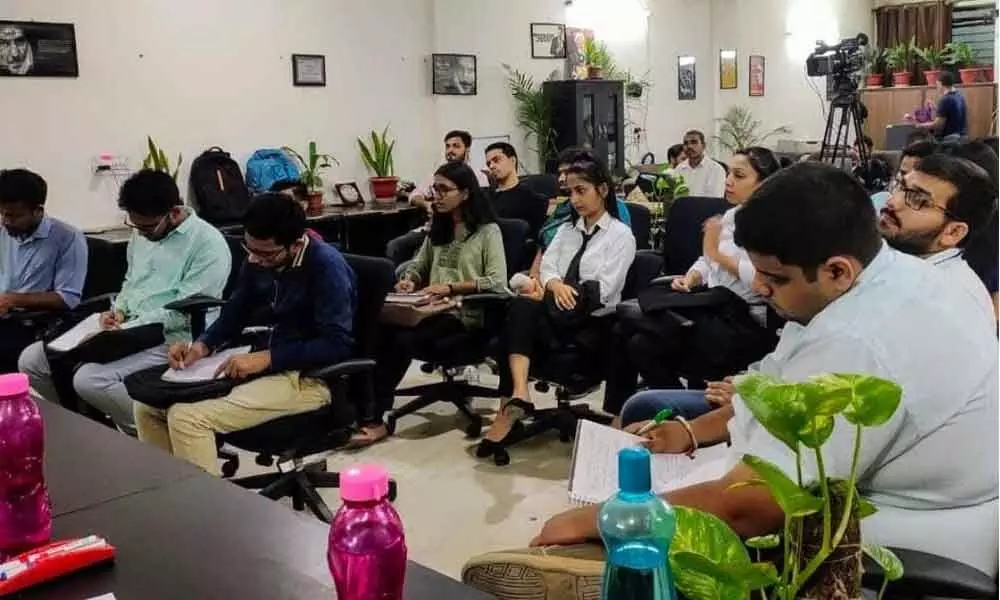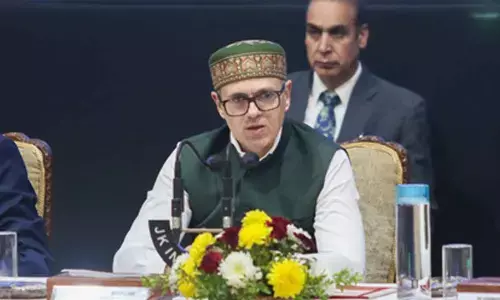Helping students learn new age legal skills

Helping students learn new age legal skills
A legal icon who is transforming the legal education landscape
Meet Ramanuj Mukherjee, an alumnus of the National University for Juridical Sciences and is presently the CEO of LawSikho, a fast-growing legal education start-up. Apart from his work, he also conducts many workshops for law students and is an avid blogger and speaker. His credit designing courses which have been used by over 4,000 students and professionals from over 23 countries.
"I worked at a Mumbai law firm, primarily to pay off my education law. It took me one year to quit to pursue my own start-up. It's been 10 years of me building legal blogs and media that educates people about the law, education companies focused on elevating the quality of lawyering and creating more equitable access to career opportunities for lawyers and law students. For the last two years, mostly during the pandemic, we have been focused on becoming a skill arbitrage enablement platform, where we help lawyers from developing countries to access remote work opportunities in the USA, Europe, and the Middle East."
Give us a look into the Legal Education Scenario in India
Our ex-prime minister Manmohan Singh had famously commented that the Indian legal education system is marked by a few islands of excellence surrounded by a sea of mediocrity. The legal education system is such that for the average law student who's just graduated, it's hard to find a job that pays more than the average Uber driver or Zomato delivery boy, and that seems like a sea of futility.
Unfortunately, we have too many law colleges in India now and a majority of them provide a mediocre experience which in turn leads to graduates finding subpar employment opportunities that barely justify the investment of time and money. This is a huge reason for the lack of justice in the country- there are very few competent lawyers around, and those who want to be better have very limited resources available to access training that fits them.
How you as a legal icon transforming the legal education landscape
It begins with our free blog known as iPleaders where all the major legal concepts and subjects are available for reading in simplified language. Lawyers and law students alike can find free learning material here that covers all their curricular needs. Lawyers often use it for research and it is described in layman's language which makes it accessible to common people too. The blog has amassed over 10,000 articles about various legal issues and attracts about 5 million page views per month. Additionally, we have a Youtube channel that covers a myriad of law topics that lawyers and law aspirants watch to understand the legal world.
We have placed our students in wide ranging organisations in India as well as internationally. We have been training lawyers from India and 30 other countries how to access remote work opportunities and build their track record. We are a remote first company with over 200 people today, and we're quickly growing.
Education is a sector that requires physical presence, the classroom, the student-teacher equation. Can online replace the experience and benefits of classroom learning? It may have worked in 2020 and 2021 because of the pandemic, but once that fades, will the role of online education start to diminish?
Online education makes the best teachers accessible. Sure, there was a time when music was performed only in a venue or intimate gatherings of people. This does not mean we do not listen to music on the internet today. We've had classes for our students in India where a Queen's Counsel has taught the Canadian legal system. My students did not have to travel to Toronto to access this. We have students in small villages accessing our judiciary course taught by top experts around the country. Somebody sitting in a tier 3 city can learn from a top lawyer working in a Bangalore law firm or MNC in Dubai. The mother of a child who cannot leave the child alone for some reason can learn online and then get work online. This is a new world; you can't access this level of expertise locally. People who get online education will have a lot more success. It's unstoppable now.
Your current mission?
Convincing 2,500 out of 150,000 small law firms in the US to hire law grads from developing countries as remote paralegals with an hourly pay rate of $10. We are also building a tech platform that will speed up such work, provide confidentiality, data protection and track accuracy as well as efficiency of remote lawyers and paralegals.
Any advice you want to give to the aspiring lawyers that can increase their chances of selection in top legal jobs?
There are three basics to remember. First, learn skills that are relevant to the job. Do not wait for the job to arrive and hope your employer will teach you the necessary skills. If that would be the scenario, you will not be paid or perhaps even treated well. Second, build a track record that demonstrates your skills and interests. Pro bono work, volunteering at organisations, internships, and writing articles would be very good for this. Finally, build your own outreach, so that you can showcase your skills and track record to the right people. Try leverage social media, events, and cold mails for this. All the best.
















